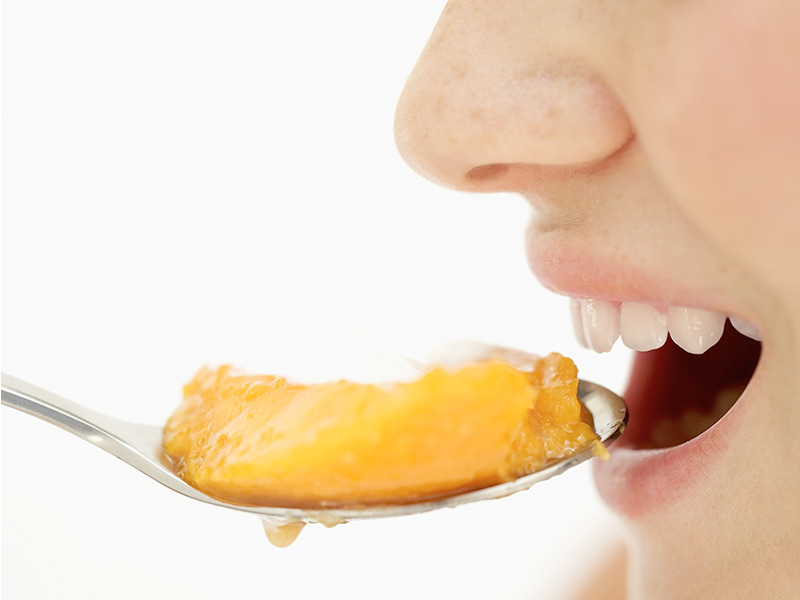Get Easy Health Digest™ in your inbox and don’t miss a thing when you subscribe today. Plus, get the free bonus report, Mother Nature’s Tips, Tricks and Remedies for Cholesterol, Blood Pressure & Blood Sugar as my way of saying welcome to the community!
How many mangos must you eat to fight cancer?

Lots of foods contain naturally-occurring disease-fighting compounds. The trick however, for most of these superfoods, is getting enough of these nutrients into your body to reap the benefits.
The mango is one such food. This exotic fruit exhibits antioxidant properties from numerous nutrient sources including vitamin C — a known cancer fighter — beta carotene, and several polyphenolic compounds including gallic acid, and their larger polymers gallotannins, that have been linked to anti-cancer and anti-inflammatory activities in previous in vitro and in vivo studies. 1 2 3
But how well are these powerful compounds absorbed when you enjoy a tasty mango? Are the anti-cancer, anti-inflammatory nutrients metabolized in a way your body can benefit from them? And how much would you need to eat to reap any benefits?
That’s exactly what a group of scientist at the Department of Nutrition and Food Science at Texas A&M University set out to discover.
In this human pilot trial published in the journal of Molecular Nutrition & Food Research, 11 healthy volunteers between the ages of 21 and 38 years old consumed 400g/day of mango-pulp for 10 days, with blood and urine samples taken on days one and 10 of the study following mango consumption. Participants refrained from consuming dietary supplements and foods which could be additional sources of gallic acid such as berries, grapes, and tea for one week prior to the beginning of the study and during the 10 days of mango consumption.
After 10 days of what the scientists termed ‘realistic consumption’ of mango pulp, the urine of volunteers revealed the presence of the beneficial compounds.
Seven metabolites of gallic acid were identified in the urine of healthy volunteers, and of those, two microbial metabolites were found to be significantly more excreted following 10 days of mango consumption.
This means that the health-boosting compounds of mango are bioavailable — capable of being absorbed into your body where you can hopefully benefit from their disease-fighting properties — and can be achieved in the body by eating a reasonable amount of the fruit.
In the study, the volunteers consume 400g/day of mango pulp. That would equate to roughly a little less than 3 cups of sliced mango fruit a day. One medium mango yields approximately 2 cups of prepared fruit. So you could consume about 2 and half mangos a day to help fight cancer and inflammation.
Editor’s Note: When it comes to cancer, American medicine is just plain outdated. Why turn to dangerous treatments even cancer doctors would refuse when you can access natural treatments that won’t make you sick or increase your risk? In my new cancer guide you’ll get dozens of proven natural cures including cancer-fighting supplements, foods and therapies. Click here to get it, plus 3 free reports, today!












